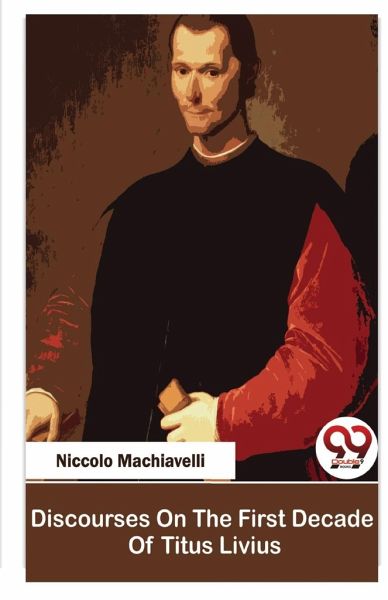
Discourses On The First Decade Of Titus Livius
Versandkostenfrei!
Versandfertig in 1-2 Wochen
21,99 €
inkl. MwSt.
Weitere Ausgaben:

PAYBACK Punkte
11 °P sammeln!
The Italian philosopher Niccolo Machiavelli wrote "Discourses on the First Decade of Titus Livius" in the early 1600s. It is a book about politics. The book is a commentary on the first ten books of the "History of Rome" by the Roman historian Titus Livy. Machiavelli wrote this book to give practical advice on how to set up and run a republic. He did this by looking at the Roman Republic, which Livy described. He says that a republic can only work if its citizens are good and are willing to put the needs of the community ahead of their own. Machiavelli talks about many different parts in this ...
The Italian philosopher Niccolo Machiavelli wrote "Discourses on the First Decade of Titus Livius" in the early 1600s. It is a book about politics. The book is a commentary on the first ten books of the "History of Rome" by the Roman historian Titus Livy. Machiavelli wrote this book to give practical advice on how to set up and run a republic. He did this by looking at the Roman Republic, which Livy described. He says that a republic can only work if its citizens are good and are willing to put the needs of the community ahead of their own. Machiavelli talks about many different parts in this book of republican government, such as the importance of law, the role of the military, and the need for good leaders. The author also talks about the problems that come up when trying to set up a republic, like the risk of corruption and how hard it is to keep public support. Thus, readers can find this novel highly analytical and often confrontational, challenging conventional wisdom.












